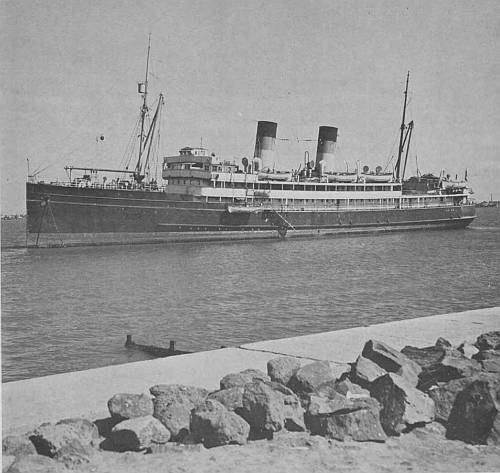- Author
- Millar, Jack
- Subjects
- History - general
- Tags
-
- RAN Ships
- None noted.
- Publication
- August 1972 edition of the Naval Historical Review (all rights reserved)
HMS Nairana and her planes were in the thick of numerous actions like this, and whether in the Atlantic, or on the long Arctic convoy route to Russia, she was there protecting her charges in fair weather and foul. Referring to one convoy accompanied by an escort carrier, German Admiral Doenitz said: ‘The worst feature was the presence of the aircraft carrier. Small, fast, manoeuverable aircraft circled the convoy continuously, so that when they were sighted the U-boats were repeatedly forced to submerge or withdraw. The presence of enemy aircraft also prevented any protracted shadowing or homing procedure by German aircraft. The sinking of the aircraft carrier is therefore of particular importance, not only in this case, but also in every future convoy action’.
On our side Prime Minister Winston Churchill, referring to demands for a second front said: ‘The defeat of the U-boats must be the prelude to all effective aggressive operations by the Allies’.
This was accomplished, thanks to the navy and air force – but the price was high, many valuable lives and ships being lost in those grim but glorious days.
Following the cessation of hostilities HMS Nairana was handed over to the Royal Netherlands Navy in 1946 and renamed Karel Doorman. She was returned to the Admiralty in 1948. On her return to England the Nairana was reconverted late in 1948, at the shipyards of Harland and Wolff Ltd., to her present-day cargo ship role, being renamed Port Victor.

She is the third ship of that name in the Port Line fleet. The first was one of the early coalburners. The second was ill-fated, being torpedoed on her second voyage in 1943, with the loss of 17 lives. If you are fortunate enough to see the Port Victor during one of her visits to the Port of Melbourne, pause a moment or two, and think of the name Nairana and the gallant part these two ships played in two world conflicts.




